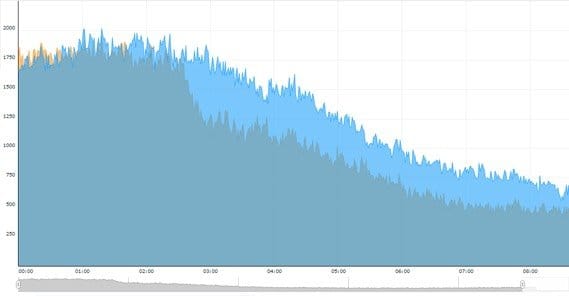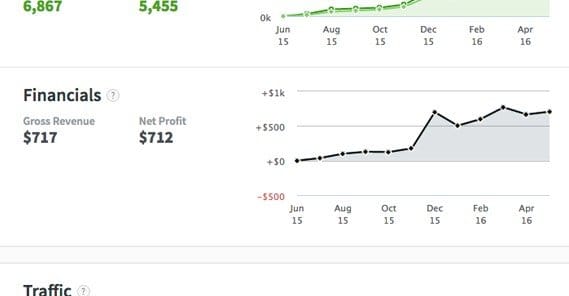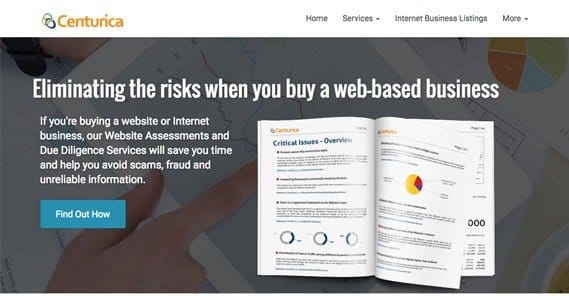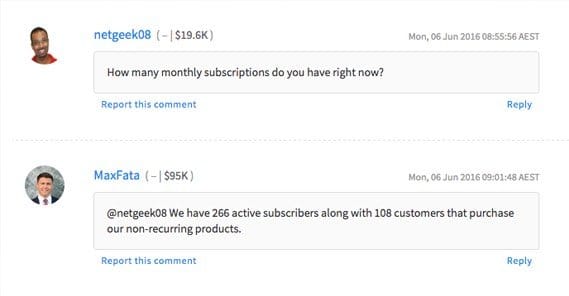10 Tips Before Listing Your Site for Sale on Flippa
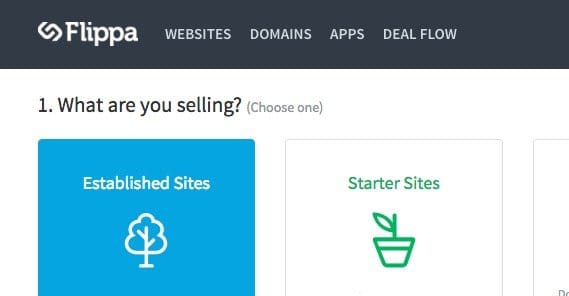
There are a few different ways you can make money online. You can sell yourself as a consultant or a freelancer. You can create a product or service, an app or a physical product, and sell it through a website. You can create content and rely on ads and affiliate marketing to make your money.
Or you can do what a small few people do, and sell entire websites.
The idea is simple. Other people don’t always want to start from scratch. They want to find and buy a website to get them going without the initial investment in both knowledge and setup required to start a site. Why do it themselves, they think, when a pro can set them on the right track with SEO and marketing, building a presence and growing a site.
You fill the niche by becoming adept at starting websites and pumping them with value. Go from nothing but a concept and a domain name into a thriving, if low-level, site in the span of months. Then list the site on a marketplace like Flippa, sell it, and start again.
You might also not be adept at starting sites. You might simply have started one in your passion, only to find your idea wasn’t as viable as you had hoped. Maybe your interest waned, maybe your business failed, or maybe you’re just getting rid of a blog you can’t bring yourself to kill. In all of these cases, you can divest yourself of a web property in the same way: listing it on a marketplace and selling it.
Before you go around listing your site, though, you need to make sure you’ve laid the groundwork to get the most out of it you possibly can. What should you do before making a listing public?
1. Determine if you Really Want to Sell
There are good reasons and bad reasons to want to sell a site. If you’re trying to sell just to get rid of it, or if traffic has dropped and you would rather sell than invest in getting it back up to par, you might not be in the best situation. If you’ve hit a growth wall and don’t have the time or energy to over come it, if you get an offer for the site and want to see if it can go for more at public auction, or if competition is about to take hold, you might be in a great position to sell.
The key here is to make sure that you’re in a position to get as much out of your site as you feel it’s worth. Do some research to see what you can expect, pricing-wise, and make sure that number is satisfactory for your needs and for your goals. If you can’t get as much out of it as you would prefer, you might want to either hold off on selling or put some work into the site to increase its value.
Sell your site when it is at the peak amount of traffic, with the peak amount of sales.
2. Make Sure the Website is Profitable
If your site isn’t making any money, who is going to want to buy it? Keep in mind that the people who buy websites aren’t buying them as collector’s items or as hobby projects. They’re buying them either to improve, flip, and profit, or to invest in as long-term business opportunities. They want a strong foundation, and that means making money.
How much money? Accounts will vary, but many people figure that a site should be making at least $300 per month before anyone will buy it. That’s going to be an average of the last six months, too, so you can’t just invest heavily into it for a month and hope it pays off by attracting an overly ambitious buyer.
Keep in mind that the amount you can sell your site for is going to depend on the value of the assets related to that site. A site that only exists based on content and makes money through AdSense is going to be lower value than a site with an accompanying brand name and dropshipping business.
3. Provide Data Upfront
Anyone seriously looking to buy a website is going to want to see the data. Most site owners use Google Analytics, so that’s what you want to have available, accurately recording and reporting data for at least the past six months, if not year. At the very least, buyers are going to want to see traffic reports.
Traffic reports are very important because they show where the traffic you’re claiming is coming from. They can see that if you’re claiming 10,000 visitors a week but your traffic report only shows 800, you’re lying. They can also spot issues with traffic generation. If Google shows that almost all of the traffic to the site is direct or paid, that’s an issue. No one wants to buy a site only to realize that 95% of its traffic came from paid advertising and that it actually has no inherent value.
While you’re at it, make sure you’re not trying to boast about the growth potential of the site. If your site is making $400 per month and you write “with a few weeks work, you can easily have it making $800 monthly!” it begs the question: why haven’t you put in that work? It’s only a few weeks and it doubles your income. It’s a problem buyers will spot and will use to avoid your site.
4. Consider a Due Diligence Report
A Due Diligence Report is a service offered by Flippa auditors for about $200. It’s a third party audit of the site you have for sale, which will detail the traffic stats, the monetization, and a whole host of other tidbits, including any potential problems or misrepresentations made in your auction.
This is an expensive service, and it’s designed specifically to assure potential buyers that you’re not lying to them about anything in your auction listing. It will catch you out in a misrepresentation, and it will point out inconsistencies with your data, so it’s only to be used if you have nothing to hide.
Honestly, most of the time you’re not going to need one of these reports. They’re something of a high roller item. If your site is expected to sell above $20,000, then you’re nearing the point where a report can be valuable.
5. Verify Your Identity
One additional measure of trust you can use regardless of your site’s value is account verification. You can link your Flippa account to other accounts, like Facebook or LinkedIn. You can also verify via phone number.
If you’re looking to buy, you need to verify in order to bid on auctions over $5,000 in value. There are no such restrictions for selling. Verification is very useful, though; it helps users see you’re confident in your reputation and you’re not going to put yourself in a position where a scam could hurt you.
6. Promote Your Auction Outside of Flippa
Nothing in the Flippa rules prohibits promoting your auction outside of their site. They aren’t a private auction. In fact, they encourage outside promotion because it means more interest, more listings, higher sales prices, more sales from more people, and more cuts for the site. It’s all around a good thing.
Where can you promote? All over the place! List a banner on your site that it’s for sale. Pay for some Facebook or Twitter ads to those who may be interested in buying sites. Promote it on niche forums and communities. You have a ton of options, so it’s a good idea to make use of them.
7. Directly Invite Buyers
Flippa has a messaging system internally, and you can use this to your advantage. After your site has been listed for a day or two, go looking for other sites in your niche, sites similar to yours, that have recently ended their auctions. Browse through these submissions and look in the comments sections. You will find a lot of different users asking questions; your goal is to locate buyers who have high trust ratings. They are obviously interested in a site in your niche, and they’re trusted buyers. This makes them qualified leads.
Send these people messages with a pitch for your listing. I recommend a shortened version of your auction listing. Tell them who you are, what your site is and what it’s about, and refer them to the auction listing for more information. You should be able to drum up a lot of interest based on a few messages.
8. Answer Comments on Your Listing
When you post a listing on Flippa, in addition to bidding, people are able to leave comments.
These will often be questions that clarify your business model, your traffic sources, or other forms of verification. I highly recommend you take the time to monitor these questions and answer them whenever possible. Avoid deleting comments, because this is a site-based red flag that hurts your trust rank as a seller. It’s typically used by spam sellers to hide their true natures, and Flippa penalizes them.
9. Set Reasonable Prices
There are three prices you can set when you set up an auction on Flippa. You should be using an auction, by the way, rather than the classified listing. Many people only check the auctions, and many buyers gauge interest by seeing how many bids an auction has.
The first number to set is your starting bid. Many people recommend starting at $1, which is a good idea, because it means you’ll get a bunch of bids hoping to lowball you. This kicks off the activity and gets you listed higher on the activity lists. Wait a day before you accept the first bid or two, though, so when you do accept it you can accept others as well.
The second number is your reserve. This is the minimum you want to sell the site for, and should be about the lowest you can reasonably hope to be satisfied getting. Ideally you will sell for more, but this guarantees you don’t sell for less. Note that if you want to guarantee your website sells, don’t set a high reserve.
The third number is the buy it now price, which allows an impatient buyer to get the website immediately for a premium. Set this as your “grand slam” price point; you doubt anyone will buy for it, but if they do, you’ll be very happy.
10. Be Patient
At least, be as patient as you can afford to be. If you’re listing an auction, you’ll want to set it to about seven days. Anything longer and the auction grows stale, and no more new bids will come in. Some bidders might even remove their bids. Anything less and you don’t get enough time to work the bid up to its full potential.
If you have a seven-day auction, don’t jump the gun and sell on day 4 just because you have a nice offer. You may get better offers down the line, and it’s unlikely that you’re going to lose that nice offer in the intervening time. If someone tries to offer you something better to remove your listing and sell privately, be very skeptical; these people are probably trying to scam you, either by getting you to sign over the site with bouncing payments or just getting you to shoot your trust rank in the foot with a removed listing so they have less competition.
If you list an auction and get no bids that beat your reserve, or you list a classified listing and don’t get any interest, don’t try to sell for a lowball just to get rid of the site. You’re almost always better off waiting a few weeks or months and listing again. Sometimes the time just isn’t right, but a little waiting can get you the payment you deserve for the work you put into your site.
 ContentPowered.com
ContentPowered.com
